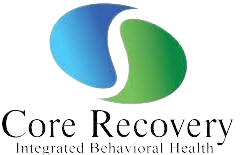Depression, a prevalent mental health condition affecting millions worldwide, goes beyond occasional sadness. It is crucial to grasp the intricacies of depression as a complex mental health condition to address its impact effectively. Understanding the stages of depression is essential, as it allows individuals, their loved ones, and healthcare professionals to recognize the signs and navigate the journey toward recovery.
In this article, we will delve into the stages of depression, shedding light on each phase and providing insights that can empower individuals to recognize, seek support, and ultimately overcome the darkness that depression brings. By unraveling these stages, we aim to foster greater awareness, compassion, and resilience in the face of depression’s challenges.
Early Warning Signs
Depression can manifest subtly, creeping into our lives before we even realize it. Recognizing the early warning signs is crucial in effectively addressing this mental health condition. This blog will explore the initial symptoms and signs of depression, highlighting the emotional and behavioral changes to be vigilant about. By understanding these early warning signs, we can proactively take steps towards seeking help and minimizing the impact on our daily lives.
- Feeling Persistent Sadness: One of the primary signs of depression is persistent sadness that lingers for weeks or even months. Individuals may experience an overwhelming sense of emptiness, hopelessness, and a general lack of interest in activities that used to bring joy.
- Loss of Interest and Pleasure: Depression often leads to diminished interest or pleasure in previously enjoyable activities. Hobbies, social engagements, and spending time with loved ones may lose appeal. A noticeable decline in employment and participation may be observed.
- Fatigue and Lack of Energy: Feeling persistently tired, mentally and physically, can be an early indicator of depression. Individuals may struggle with low energy levels, making even the simplest tasks feel exhausting. This fatigue can disrupt daily routines and hinder productivity.
- Changes in Sleep Patterns: Depression often disrupts sleep patterns, leading to insomnia or excessive sleeping. Some individuals may struggle to fall asleep or wake up frequently at night, while others may experience oversleeping and find it challenging to get out of bed in the morning.
- Appetite and Weight Changes: Fluctuations in appetite and weight are common early warning signs of depression. Some individuals may experience a loss of appetite and noticeable weight loss, while others may turn to food for comfort, increasing need and weight gain.
- Irritability and Agitation: Depression can manifest as heightened irritability, restlessness, and agitation. Minor frustrations that once seemed manageable may now trigger intense emotional reactions, causing strain on relationships and daily interactions.
- Difficulty Concentrating: Depression can impact cognitive function, making it challenging to concentrate, remember details, or make decisions. Individuals may find it harder to stay focused on tasks at work or school, leading to a decline in performance and productivity.
Impact Of These Early Warning Signs On Daily Life
The early warning signs of depression can profoundly impact various aspects of daily life. They can disrupt relationships, hinder academic or professional performance, and erode self-esteem. Individuals may withdraw from social activities, experience difficulties fulfilling responsibilities, and struggle to maintain a healthy work-life balance. The cumulative effect of these symptoms can contribute to a sense of isolation and further exacerbate the emotional toll of depression.
Deepening Darkness
Individuals often enter the “Deepening Darkness” stage of depression, where symptoms intensify and impact various aspects of life. Understanding this stage is crucial for individuals, support systems, and healthcare professionals to provide appropriate support and interventions. This blog explores the deepening darkness of depression, including symptoms of progression, increased sadness, hopelessness, despair, and adverse effects on relationships, work, and self-esteem.
Progression Of Depressive Symptoms
During the deepening darkness of depression, symptoms tend to intensify, making it increasingly difficult for individuals to cope with their daily lives. Feelings of sadness may become more persistent, and the weight of hopelessness can feel overwhelming. Energy levels may further decline, leading to fatigue and exhaustion, making even simple tasks seem impossible. Additionally, individuals may experience changes in appetite, sleep patterns, and concentration, further exacerbating their emotional and mental distress.
Increased Feelings Of Sadness, Hopelessness, And Despair
As the deepening darkness takes hold, individuals with depression often find themselves engulfed in a profound sense of sadness, hopelessness, and despair. The pervasive nature of these emotions can make it challenging to envision a brighter future or find joy in previously enjoyable activities. It’s important to remember that these feelings are not a reflection of weakness or personal failure but rather symptoms of the condition. Acknowledging and validating these emotions is crucial to seeking support and treatment.
Negative Impact On Relationships, Work, And Self-Esteem
Depression’s deepening darkness extends beyond the internal realm, affecting various aspects of an individual’s life. Relationships with family, friends, and romantic partners may suffer as communication becomes strained, and the ability to engage emotionally may diminish. At work or in educational settings, productivity and concentration may decline, potentially leading to difficulties meeting responsibilities and fulfilling obligations. Self-esteem often takes a significant hit during this stage, as individuals may berate themselves for their perceived shortcomings and struggle to see their worth and capabilities.
Physical And Cognitive Effects
Depression impacts our emotions and physical and cognitive well-being. Understanding the physical symptoms and cognitive impairments is crucial for comprehending the full extent of this mental health condition and its impact on individuals’ lives. This article explores the physical and cognitive effects of depression and how these aspects contribute to the overall experience of this debilitating condition.
Physical Symptoms: Changes in Sleep, Appetite, and Energy Levels
Depression can cause physical manifestations such as disrupting sleep patterns, causing difficulty falling or staying asleep, and causing fatigue, decreased energy levels, and a sense of lethargy. It can also disrupt appetite and eating habits, leading to weight loss or potential health complications. These fluctuations can contribute to frustration, self-consciousness, and a negative body image. Physical symptoms like headaches, muscle aches, and digestive issues may not have a clear physical cause but are closely linked to emotional distress experienced during depressive episodes. These physical symptoms can exacerbate the overall burden of depression, making it even more challenging for individuals to cope.
Cognitive Impairments: Difficulty Concentrating and Making Decisions
Depression impacts cognitive function, causing difficulties in concentration, memory, and decision-making. This impairment can hinder performance at work, school, and interpersonal relationships. Decision-making becomes overwhelming, leading to indecisiveness or avoidance. This mental struggle intensifies the feeling of being stuck and hinders progress in various aspects of life, perpetuating the cycle of depression.
How These Effects Contribute to the Overall Experience of Depression
Depression’s physical symptoms and cognitive impairments are interconnected with its emotional aspects. Physical symptoms, such as lack of energy, disrupted sleep patterns, and discomfort, amplify feelings of hopelessness and exhaustion, draining resilience and motivation. Cognitive impairments, such as difficulty concentrating and decision-making, contribute to inadequacy and self-doubt, leading to frustration and lowered self-esteem. Recognizing the physical and mental effects of depression helps understand its multidimensional impact on individuals. A holistic approach to treatment is crucial, addressing both emotional and physical challenges. Support and interventions targeting these effects can help individuals regain control over their lives and gradually break free from depression.
Recovery And Healing
When facing the overwhelming depths of depression, the journey toward recovery may feel insurmountable. However, with the proper support and strategies, it is possible to emerge from the darkness and embark on a healing path. In this blog post, we will explore the recovery process from depression, the potential outcomes that await, and the crucial roles played by therapy, medication, and self-help strategies. Additionally, we will draw inspiration from real-life stories of individuals who have triumphed over depression, highlighting their resilience and offering hope to those still struggling.
The Recovery Process: A Glimmer of Hope
Recovery from depression is not an overnight but a gradual and multifaceted journey. It begins with acknowledging the need for help and seeking professional support. Therapists and mental health professionals are vital in guiding individuals through their recovery, providing a safe space to explore emotions, address underlying issues, and develop coping mechanisms. With time and effort, individuals can gradually regain control over their lives and rebuild a sense of self.
The Power of Therapy, Medication, and Self-Help Strategies
Therapy forms a cornerstone of the recovery process, offering various approaches tailored to each individual’s needs. Cognitive-behavioral therapy (CBT) helps identify negative thought patterns and replace them with more positive and adaptive thinking. Interpersonal therapy (IPT) focuses on improving relationships and social skills, while psychodynamic therapy delves into unresolved past experiences. Medication, such as antidepressants, can also be valuable in managing symptoms and supporting the recovery journey. Furthermore, self-help strategies play a crucial role in sustaining recovery. These strategies include practicing self-care, exercising regularly, adopting healthy sleep patterns, and maintaining a supportive social network. Mindfulness and meditation techniques can also help individuals cultivate inner calmness and improve emotional well-being. Individuals can create a comprehensive recovery approach by combining therapy, medication, and self-help strategies.
Inspiring Stories of Triumph
Real-life stories of individuals who have successfully overcome depression can serve as beacons of hope and inspiration. These stories showcase the resilience and strength within each person, reminding us that recovery is possible even in the darkest moments. Through determination, perseverance, and the support of loved ones and professionals, individuals have emerged from despair to reclaim their lives. These stories instill hope and provide practical insights and strategies that others can incorporate into their recovery journeys.







 In CA By O360®
In CA By O360®